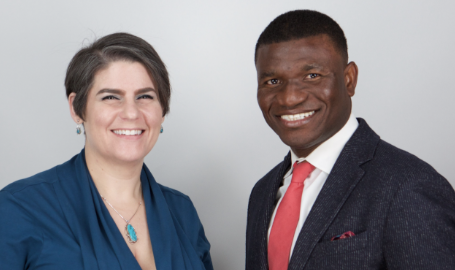
How to Manage When a Client Dies (Self-Study)
Self-Study
KEY INFORMATION:
This course is eligible for 2 CEUs for Licensed Social Workers, Licensed Mental Health Counselors, Credentialed Alcoholism and Substance Abuse Counselors (CASACs), and Psychologists in New York State
For more information about CEU approval, please click here.
Format: Self-Study Online Seminar
Introduction
Regardless of which patients and clients we work with, the skills to manage when a patient or client dies will enhance your overall skills as a mental health provider. You will master the latest on Neuroscience, cognitive and behavioral science, and evidence-based practices to enhance your skills and better affect change, in a more effective way, in a more efficient way, and in a more collaborative and engaging way.
This is all in addition to learning the Socratic Motivational Practice framework as part of mastering the secrets and soft skills of managing ourselves, helping the families, and additional clients, and how to best tailor this framework to those you work with. The amount of knowledge in mental health doubles every eighteen months, and we all want to provide authentic care.
Please join us, arm yourself with tools, enhance your practice, and the lives of your patients, clients, and their families.
At the end of this seminar, you will have:
- Learned the framework of the Socratic Motivational Practice to manage when a patient or client dies.
- Learned the Principles, Techniques, and Steps of the Socratic Motivational Practice to manage when a patient or client dies.
- Increased your tools to talking with patients and clients, by identifying at least one thing you will start doing differently at the end of the seminar, as a result of the Socratic Motivational Practice framework.
- Everything you want in one place, including an illustration of how to implement the newly learned skills during our role plays.
- Received your certificate by email immediately after your post-test and evaluation are completed.
Who is this for?
This course is for any clinician invested in learning new or honing existing skills to be able to use in dynamic ways to support their patients and clients and to end suffering.
Here's what attendees have been saying about SWEET seminars:
"Presented in a very informative way." - Myralynne, LCSW-R
"I found this to be another interesting topic. I enjoyed the fact that I can discuss it with my coworkers and, if need be, patients." - Rosalind, LMSW
"SWEET institute is a great company meeting many CEU needs." - Claire, LCSW-R

Join Us Now!
Your Facilitator and Co-Facilitator

Mardoche Sidor, MD, is a Harvard-trained Quadruple Board Certified Psychiatrist, Assistant Professor of Psychiatry at Columbia University, School of Physicians and Surgeons, trained in and taught all major psychotherapeutic modalities, including and not limited to CBT, DBT, Family Systems, and Psychodynamic Psychotherapy. He is also the author of 11 books including Journey to Empowerment, Discovering Your Worth, The Power of Faith. and, The Art of Living. Dr. Sidor has worked both as a primary care physician and Medical Director in three different settings, including a Chief Medical Officer of the Center for Alternative Sentencing and Employment Services (CASES). He is a main facilitator for the SWEET Institute. His 11th book, entitled, NLP for Clinicians is now available to the public.
Karen Dubin, PhD, LCSW, is a Columbia-trained Social Worker with wide clinical, teaching, and supervision experience. She also has a background in management, mentorship, and leadership that spans more than 20 years. Her added passion is in advocacy and coaching. She has previously held Executive level positions, and two other directorships in different organizations. She is currently Adjunct Faculty at Columbia University School of Social Work and Adelphi University School of Social Work. She also maintains a private practice, provides supervision, and clinical and management training. She is also a personal and executive-level coach. She is a main facilitator for the SWEET Institute.
SWEET Curriculum







